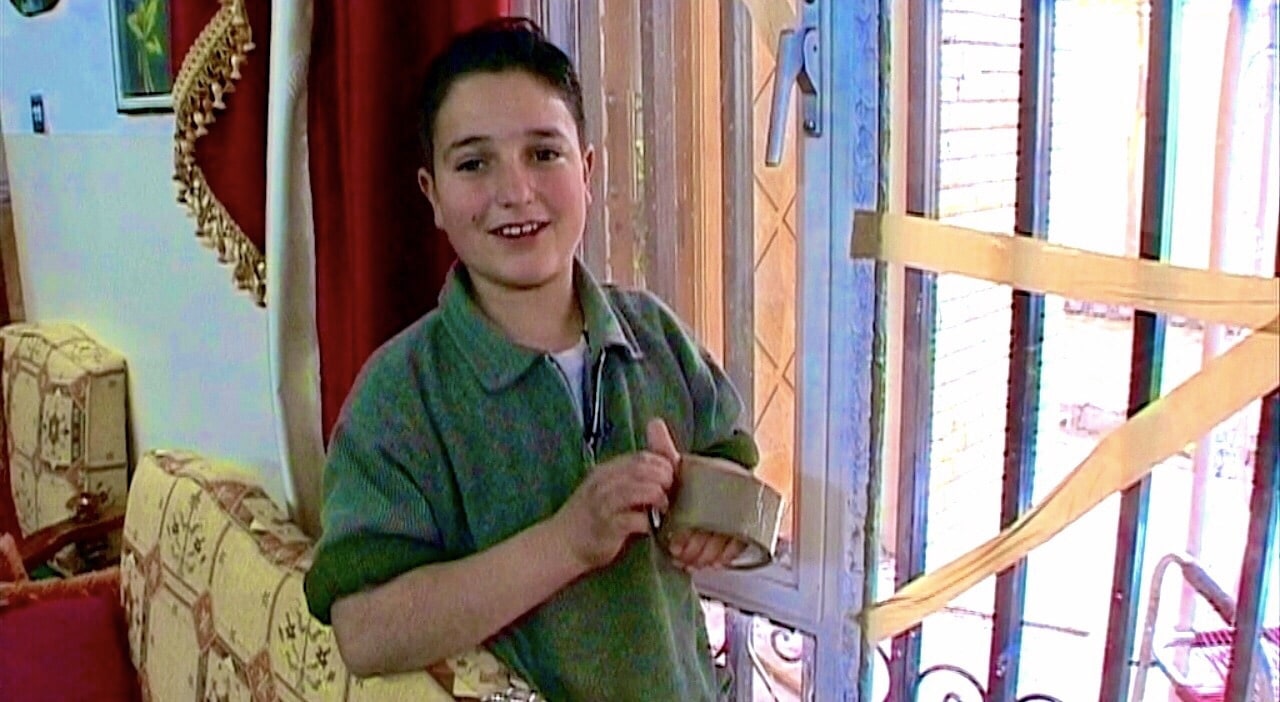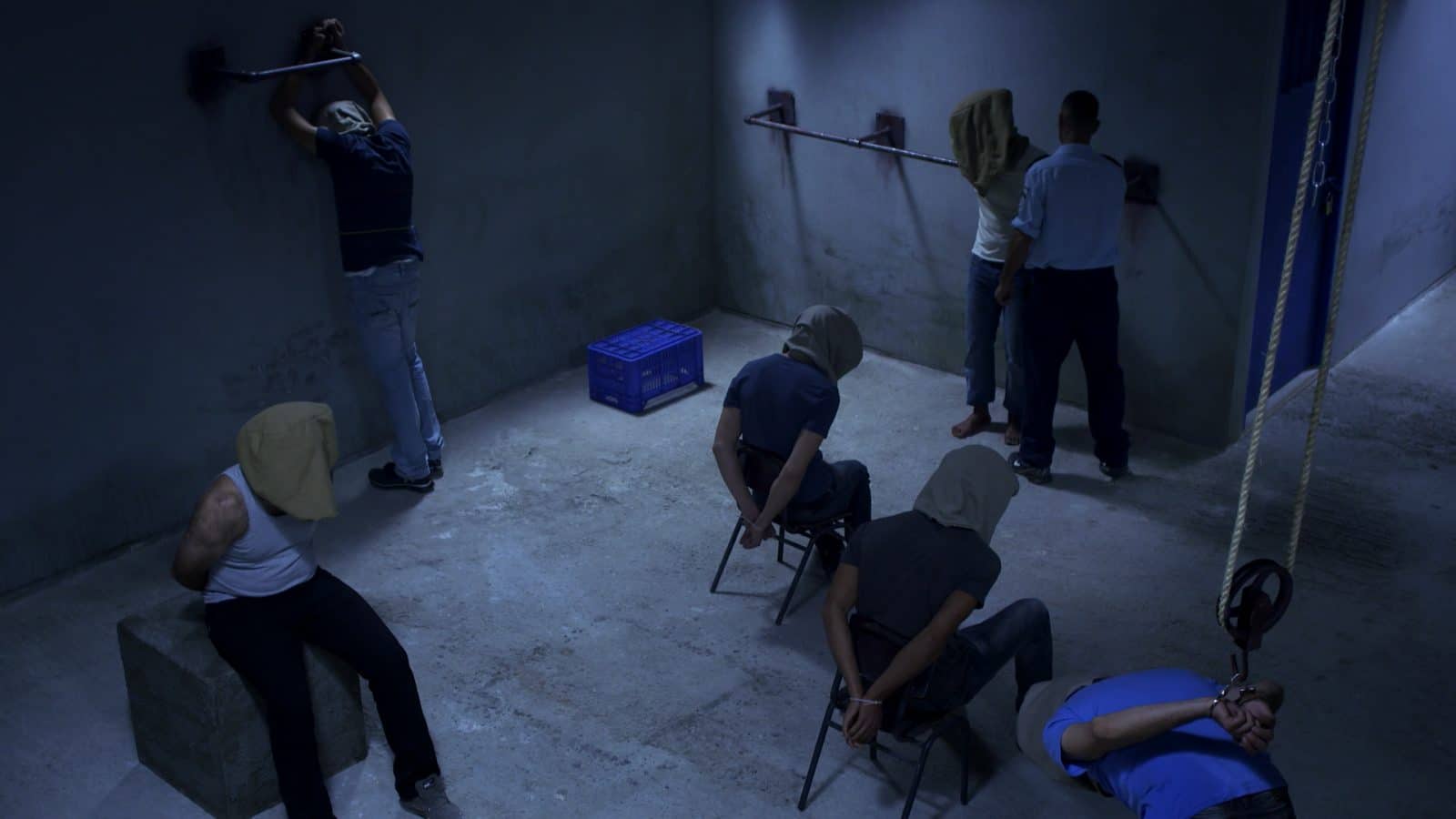Do we know the Arab world? That question is what the Amsterdam documentary festival IDFA is raising this year with a special themed programme. The opening film Amal Wednesday is an immediate nice prelude. The coming-of-age story of an intrepid Egyptian girl who at 14 is already demonstrating in Tahir Square. Selected for the main competition and an appealing eye-catcher for Shifting Perspectives: The Arab World.
Because think for a moment. For example, what images do we remember from the US invasion of Iraq in 2003? The nightly fireworks of the attack on Baghdad, perhaps. Or the fallen dictator Saddam Hussein being dragged out of hiding. But did we also see the bookseller in the marketplace rejoicing that looters have no interest in literature? The textbooks full of propaganda? The water pump that a family installs in the backyard as a precaution? Homeland: Iraq Year Zero shows us everything as the people of Baghdad experienced it themselves.
Yep, Homeland is a true immersion, as this key film of Shifting Perspectives takes more than five hours. But just do it. It is a unique opportunity, this monumental cross between family portrait and historical document.
Iraqi director Abbas Fahdel, who lives in France, returned his country for this. In Baghdad, he filmed his family and friends, for whom everyday life also continues despite threats of war and invasion.
Birthday card for Saddam
Shortly after Saddam Hussein fell, the filmmaker speaks to his niece there, teenager Kanar. Her birthday and also that of her cousin fell exactly in the days of fighting. Did they celebrate after all?
"Yep," she replies with a mischievous smile. "But we got a lot of comments from the adults who thought we should be ashamed. Celebrating while Iraqis were dying everywhere! So we cancelled the party. We did eat the cake together, though."
Speaking about the television footage of the fall of her own city of Baghdad, Kanar says: "I could not believe my eyes. A man hit a portrait of Saddam Hussein with his shoe. That he dared to do that! He told me that he had lost four of his sons because of Saddam."
"It was hard to believe, but we were happy. My cousin tore Saddam's portrait out of his schoolbooks. While only a few days ago, we had been asked to send Saddam a card for his birthday on April 28. All Iraqi schoolchildren were required to do so."
Nappies

Fahdel followed Kanar and her family - Iraq's ordinary middle class - during the year leading up to the US invasion and in the months that followed.
Girls giggle as they try to make a gas mask out of nappies. Kanar's little brother Haidar actually finds it exciting. He gets to reinforce the windows with wide strips of tape so that when the bombs fall, the glass doesn't fly around. There are just summer trips to the river in addition to actions to secure food rations. Later, children do get taken to school by car. By then, it has become life-threatening in the city because of looters and armed gangs.
Image
Thus traversed Homeland our standard images about that region imposed by Western news programmes and other media. With Shifting Perspectives IDFA aims to show important themes from a different angle. Last year it dealt with race issues, identity and colonialism, this year it is the Arab world.
"It was a fairly obvious choice," says programmer Laura van Halsema. She chose the films together with Isabel Arrate Fernandez (IDFA Bertha Fund) and Syrian producer Orwa Nyrabia. The Arab world is one of the hotbeds of contemporary history. "But," Van Halsema explains, "our perception is mainly determined by Western filmmakers and news media. An outsider's perspective, in other words. If people in those areas themselves are portrayed at all, it rarely goes beyond stereotypical roles as victims or terrorists. We want to show that the image is substantially different if the maker himself comes from the Arab world, or at least has his or her roots there."
The 15 for Shifting Perspectives: The Arab World selected titles are by makers who come from or have their roots in those countries themselves. Very diverse productions, from personal to experimental. Often small and less well-known stories, in which events from everyday life play out against the backdrop of larger political developments.
No jihadists
Therefore, an impressive competition film as Of Fathers and Sons, about the life of an Al Nusra fighter shuttling between front and family in northern Syria, yet not selected for The Arab World. After all, the jihadist phenomenon is familiar enough by now.

Well selected was the extraordinary and confrontational Ghost Hunting. Palestinian ex-prisoners reenact scenes they experienced themselves in a recreated Israeli cell complex. Reconstruction and processing therapy all in one. A project that helps participants regain control of their own identity.
Identity is a recurring theme in the wide-ranging programme. Amal, about the Egyptian girl in a man's world is already a telling example of this. In a very different way, the theme surfaces in the French-Algerian China is Still Far Away. Director Malek Bensmaïl visits the Berber village where the Algerian struggle for independence erupted over 50 years ago. Now he films schoolchildren there, listening with visible boredom to lessons about the past and struggling with French grammar. Because Algeria may be proud and independent, but the language of the former coloniser is still indispensable for anyone who wants to achieve anything. If that is not a torn identity!
At the same time, it is a delightfully relatable portrait of local youth. Truant rascals who nevertheless board the bus with great bravado for a school trip to the sea.
Moving outpouring
Recognisable? Yes indeed, and according to Van Halsema that's the intention. We do not see the people from that Arab world as the embodiment of news clichés. They are not primarily people who are different from ourselves, but rather citizens, fathers and mothers, sons and daughters. Nuanced images that are much more personal than we are usually presented with, and therefore more recognisable and also more universal.
I was moved by the cleaning lady's unexpected but telling outpouring in China is Still Far Away. At Homeland I had to laugh at the students half-jokingly wondering where the invasion is now. They had counted on the exams being cancelled. Now they threaten to go ahead anyway even though they haven't prepared. But later in the same film, a tour of the poverty-stricken neighbourhoods where disconcerting stories emerge after the fall of Saddam.
And the monty teenager Kanar? Who is doing her homework by an oil lamp during one of the many power cuts. Her little brother, meanwhile, shows off the brand new satellite dishes on the roof. Under Saddam these were banned. At last they can now receive foreign channels, he reports happily. It is almost reassuring, were it not for the fact that by then the filmmaker has already severely warned us of something to come.
The 30th International Documentary Film Festival Amsterdam will take place from 15 - 26 November.
